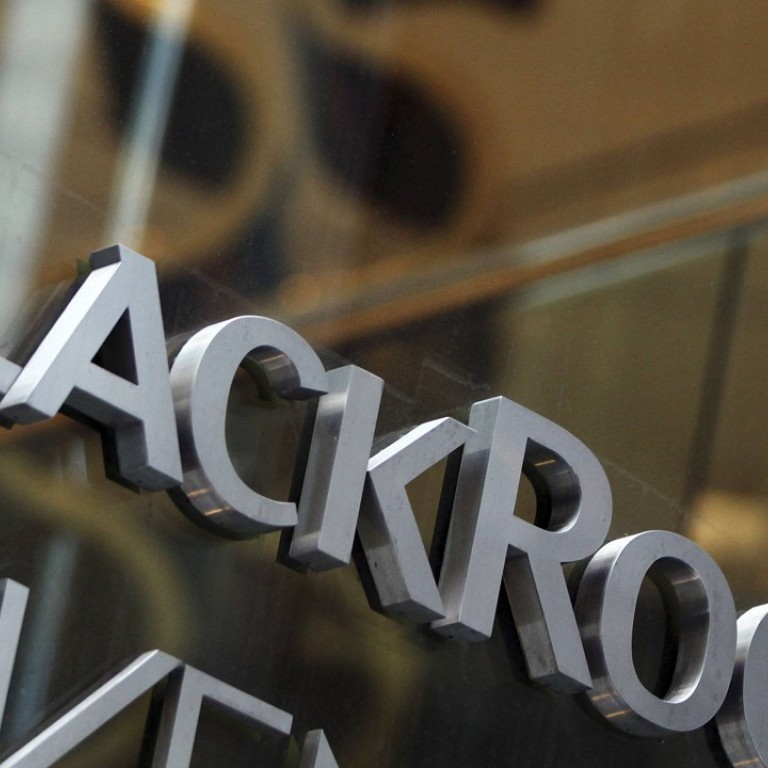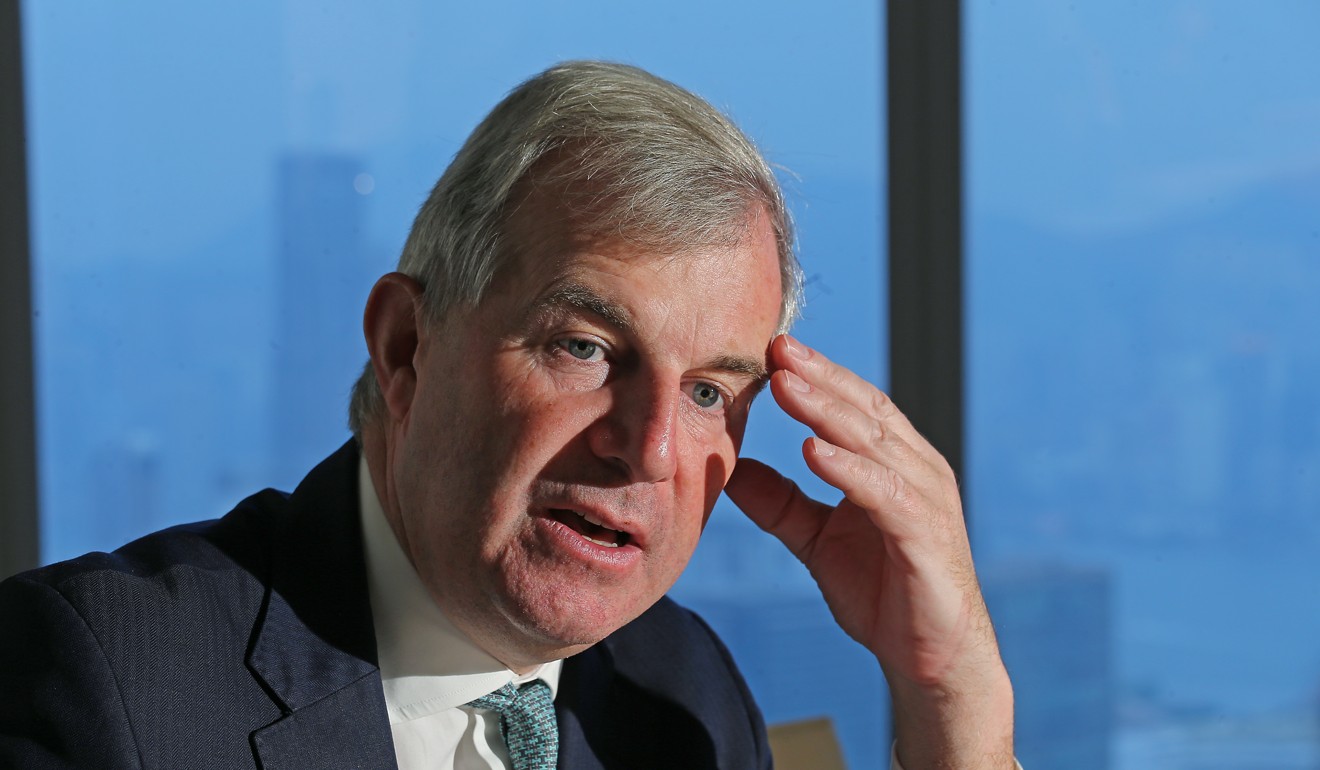
BlackRock expecting China’s economic growth to slow in 2018
World’s largest fund manager says after high-speed economic growth in the past three decades, the Chinese government has become increasingly concerned about high levels of debt, prompting the central bank to keep lending tight
BlackRock, the world’s largest fund manager with around US$6 trillion in assets under management, is expecting Chinese economic growth to slow in 2018 amid its continued debt-cutting campaign.
“We think China’s GDP (gross domestic product) growth will slow both in nominal and real terms next year,” Lu Wenjie, China investment strategist at the US investment house, told a media briefing in Hong Kong.
“This (situation) is natural, as the government would be intentionally diverting some investment away from sectors such as real estate and infrastructure,” he said, as the Chinese government’s focus now is on containing potential risk in the country’s financial sector, and continuing to cut debt, particularly among its state-owned enterprises.

China has seen high-speed economic growth for the past three decades mainly on the back of cheap labour, massive state spending on infrastructure projects, and high exports.
Bank lending, however, keeps reaching record annual highs amid the state’s investment frenzy in real estate and infrastructure, and as the central government becomes increasingly concerned on the potential financial risks.
That is prompted the central bank to keep liquidity tight in a bid to force GDP growth-hungry local governments to keep their lending levels under control.
“China’s monetary policy (next year) will be skewed towards the tighter end. We think that policy is not only in line with an overall equity market seeing rising inflation, but would also help push forward the country’s ongoing structural reforms,” said Lu.
This year was driven by internet and technology stocks where we think it will become more balanced in 2018, reflecting a broader, wider market recovery
Similarly, Sean Taylor, Asia Pacific chief investment officer at Deutsche Asset Management, says that while the rest of the world previously received economic stimulus to help guide themselves towards recovery, Asian governments including China’s had different mandates – to weed out corruption, for instance, or improve lifestyles through structural reforms, which ultimately led to slower growth.
“It was really in tightening, anti-growth mode,” Taylor said in a separate interview, predicting China’s economic growth to slip to 6.5 per cent in 2018 from 6.7 per cent this year.
Deutsche Asset Management oversees €711 billion (US$838 billion) of assets.
He is still bullish, however, on Chinese stocks because corporate earnings growth is likely to pick up with fund flows from foreign investors increasing from current subdued levels.
He forecasts the MSCI China Index’s price to earnings at 13.5 times in 2018, with 15 per cent earnings growth.
“This year was driven by internet and technology stocks where we think it will become more balanced in 2018, reflecting a broader, wider market recovery,” Taylor said.
Lu also expects strong performance in both mainland and Hong Kong listed companies on the back of strong corporate earnings, although Hong Kong listed shares was expected to have better liquidity as they could receive both global investments and southbound funds from the mainland.


